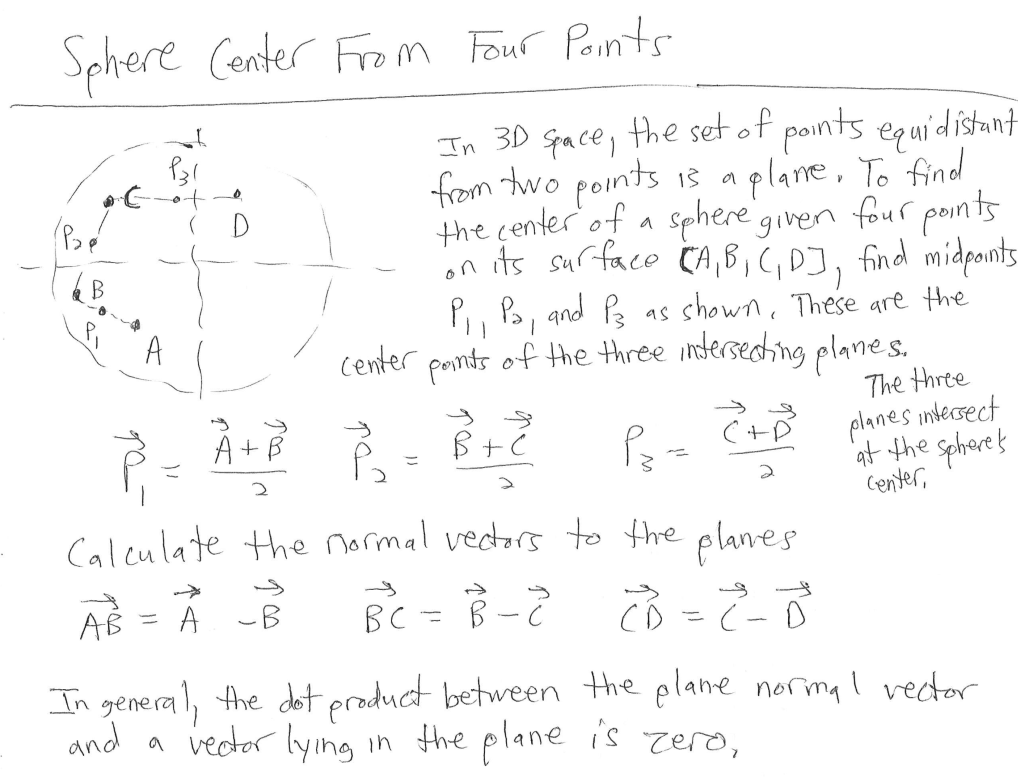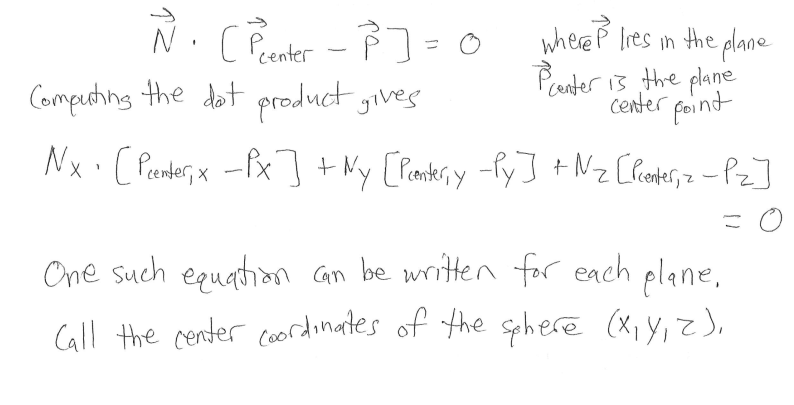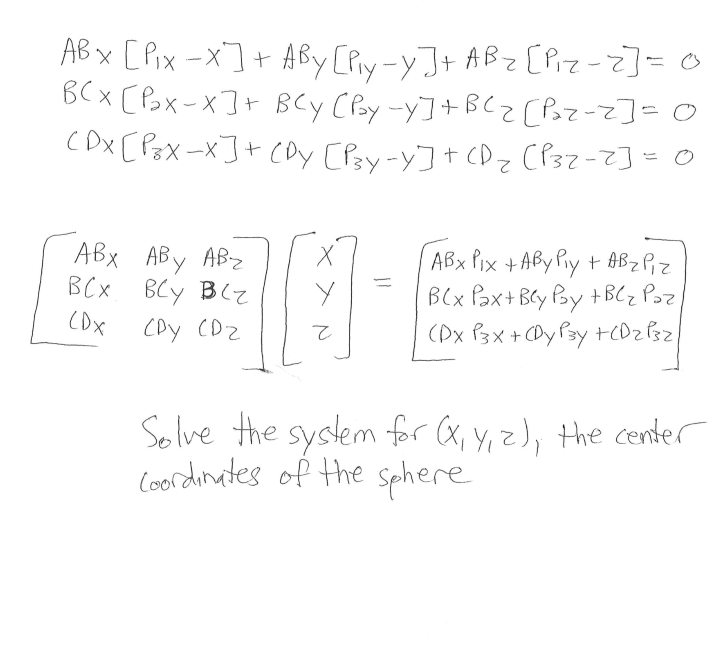Sphere Center From Four Points
The following four points lie on a sphere in the x y z coordinate system. Coordinates are approximated to three decimal places.
| ( x 1 , y 1 , z 1 ) | ( 5 . 0 0 0 , 8 . 7 3 2 , 1 5 . 0 0 0 ) |
| ( x 2 , y 2 , z 2 ) | ( 2 . 0 0 0 , 7 . 0 0 0 , 1 7 . 0 0 0 ) |
| ( x 3 , y 3 , z 3 ) | ( 3 . 7 3 2 , 4 . 0 0 0 , 1 5 . 0 0 0 ) |
| ( x 4 , y 4 , z 4 ) | ( 0 . 6 5 3 , 1 0 . 7 0 2 , 1 3 . 6 9 5 ) |
If the center of the sphere has coordinates ( h , k , m ) , determine h + k + m .
Details and Assumptions:
Round
h
,
k
, and
m
individually to the nearest integer before adding them.
The answer is 22.
This section requires Javascript.
You are seeing this because something didn't load right. We suggest you, (a) try
refreshing the page, (b) enabling javascript if it is disabled on your browser and,
finally, (c)
loading the
non-javascript version of this page
. We're sorry about the hassle.
3 solutions
How did you solve the system? Did you subtract one equation from all the others to get rid of the squared terms?
Log in to reply
That is a feasible method and will leave us with a system of linear equations which one can solve easily.
We know that the distance from a point (x,y,z) to the center of the sphere(h,k,m) is given by ( x − h ) 2 + ( y − k ) 2 + ( z − m ) 2 .
The first thing that pops out of the problem are the numbers 8.732 and 3.732. We know that 3 = 1 . 7 3 2 . There is always a feeling that certain numbers are given in a problem to make the solution easier.
Assigning h = 2 and k = 7 makes the terms ( x 3 − h ) 2 and ( y 1 − k ) 2 equal to 3.
Now, since all points on a sphere are equidistant from the center of the sphere, we can choose to equate the distances from the points ( x 1 , y 1 , z 1 ) and ( x 2 , y 2 , z 2 ) with h = 2 and k = 7
( x 1 − h ) 2 + ( y 1 − k ) 2 + ( z 1 − m ) 2 = ( x 2 − h ) 2 + ( y 2 − k ) 2 + ( z 2 − m ) 2
( 5 − 2 ) 2 + ( 8 . 7 3 2 − 7 ) 2 + ( 1 5 − m ) 2 = ( 2 − 2 ) 2 + ( 7 − 7 ) 2 + ( 1 7 − m ) 2
9 + 3 + m 2 − 3 0 m + 2 2 5 = 0 + 0 + m 2 − 3 4 m + 2 8 9
Rearranging the terms, we get
4 m = 5 2 or m = 1 3
Therefore, h = 2 , k = 7 , m = 1 3 or h + k + m = 2 2 .
That's pretty clever. Although that hint was completely accidental on my part.



The Cartesian equation of a sphere with centre ( h , k , l ) and radius r is given by: ( x − h ) 2 + ( y − k ) 2 + ( z − l ) 2 = r 2
Thus, we have: ⎩ ⎪ ⎪ ⎪ ⎨ ⎪ ⎪ ⎪ ⎧ ( 5 − h ) 2 + ( 8 . 7 3 2 − k ) 2 + ( 1 5 − l ) 2 = r 2 ( 2 − h ) 2 + ( 7 − k ) 2 + ( 1 7 − l ) 2 = r 2 ( 3 . 7 3 2 − h ) 2 + ( 4 − k ) 2 + ( 1 5 − l ) 2 = r 2 ( 0 . 6 5 3 − h ) 2 + ( 1 0 . 7 0 2 − k ) 2 + ( 1 3 . 6 9 5 − l ) 2 = r 2
Solving, we obtain h ≈ 2 , k ≈ 7 , l ≈ 1 3 so the answer is 22.